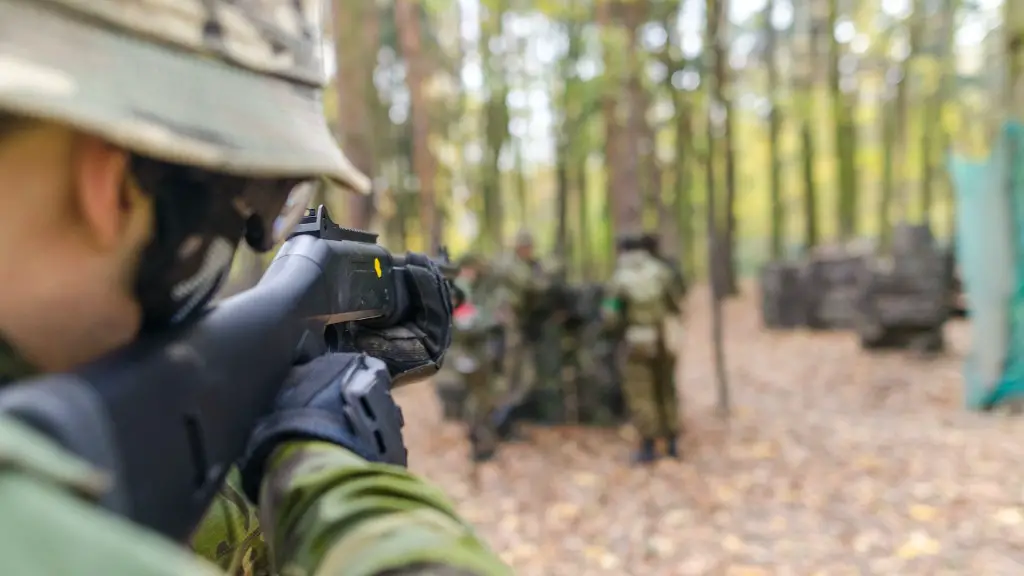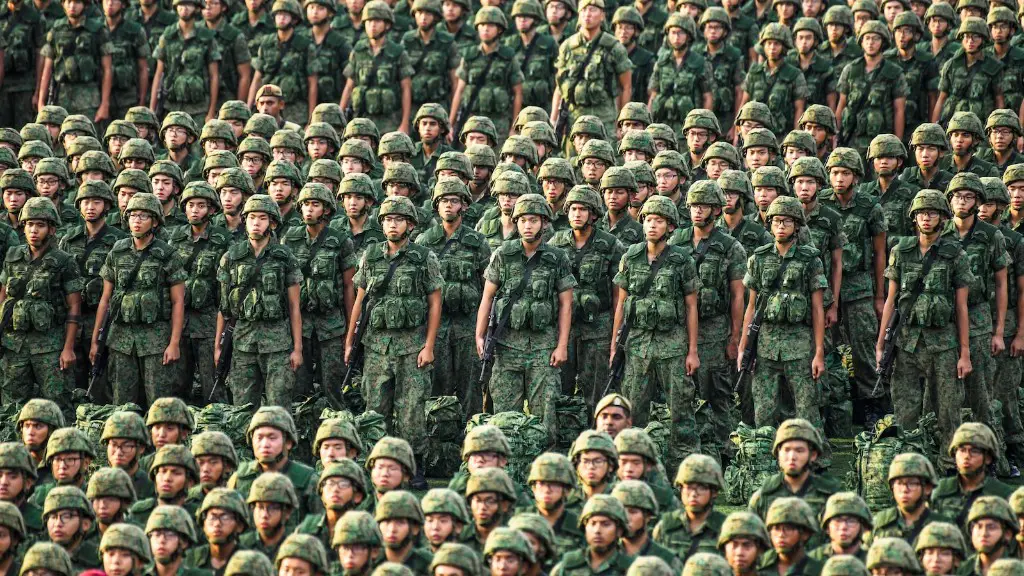Background Information
India and China have a long history of conflicts and border disputes, the most notable of which being the 1962 Sino-Indian War. During this conflict, the Chinese Armed Forces invaded and occupied parts of Indian-controlled territory. This conflict is considered by many as a major turning point in the relationship between India and China, and since then relations have remained strained in some aspects, but also cooperative in others. The issue of Chinese aggression in India has remained a sensitive topic in both countries since their independence in 1947.
Relationship Between India and China in Recent Years
Since the mid 2000s, India and China have sought to strengthen their relationship through various diplomatic initiatives. The two countries have established numerous agreements and deals which aim to reduce tensions and promote mutual cooperation. In 2005, the two countries opened their border for transit trade and in 2006, an agreement was reached for a ‘comprehensive economic partnership’. This allowed for mutual investments and the development of new industries. Both countries have also engaged in negotiations over their territorial dispute in the Himalayan region, with the intention of finding a peaceful resolution.
Did The Chinese Army Invaded India ?
The answer to this question is both yes and no. While it is true that Chinese forces have invaded Indian territory during the 1962 Sino-Indian War, since then there have been no large-scale Chinese invasions of Indian territory. The Chinese forces did occupy some areas (primarily the Aksai Chin region) during the war, but since then the Chinese Government has maintained its stance that there was no invasion of India.
China’s Position
The Chinese Government has long been steadfast on the issue of their role in the Sino-Indian conflict, arguing that there was no invasion of India by their forces. The Chinese Government has argued that their forces simply sought to reclaim territory that was under Chinese control prior to Indian independence in 1947. This stance has been supported by many historians, who argue that India was the aggressor in the conflict.
Indian Perspective
Despite the Chinese Government’s insistence that their actions did not constitute an invasion of India, the Indian Government has always seen the 1962 conflict as an act of Chinese aggression. Indian politicians have long argued that the Chinese forces violated India’s sovereignty and invaded Indian territory. The Indian Government has also cited the destruction of Indian villages and the displacement of thousands of Indian citizens as evidence of the Chinese aggression.
Effects of the Conflict
The Sino-Indian War had a major impact on both countries, as well as the region and how the two states see each other. The conflict caused widespread destruction in the region, and over 600,000 Chinese and Indian soldiers lost their lives. Additionally, the conflict created deep mistrust between the two countries that still persists today.
International Community’s Response
The international community was largely silent during the conflict, and still remains so today. India and China are both members of the United Nations and the international community is reluctant to intervene in their conflict. However, the United Nations has taken a more active role in promoting dialogue between the two states in recent years.
The Problem of Lack of Dialogue
Despite growing efforts to promote dialogue and cooperation between India and China, the two countries have been unable to make much progress in resolving the conflict. This is due to a lack of trust between the two sides and a refusal by the Chinese Government to recognise the Indian Government’s positions on the conflict. Additionally, the Chinese Government is always careful not to appear to be backing down or compromising on the issue, which hampers efforts to solve the problem.
The Importance of Mutual Respect
It is clear that the long-standing conflict between India and China must be resolved if the two countries are to forge a meaningful relationship. The increasing importance of China on the world stage and India’s emergence as a regional power mean that the two countries can no longer afford to view each other with suspicion and mistrust. For this to happen, there must be mutual respect and recognition of the other’s interests and concerns. Only then can India and China move forward and build a strong and lasting relationship.
China’s Rise in India
In recent years, China has sought to strengthen its economic ties with India and invest in the country’s infrastructure. One of the most notable examples of this was China’s involvement in the development of the Chennai-Bengaluru Industrial Corridor. This is a network of roads, ports and other infrastructure projects that will connect industrial centres in south India. Chinese companies are playing a major role in this project, and this has opened up new economic opportunities for both countries.
India’s Involvement in Chinese Affairs
In addition to China’s economic interests in India, there has also been an increase in the level of Indian involvement in Chinese affairs. India is one of the few countries that has been able to engage in constructive dialogue with China about a wide range of issues, such as trade, security and regional issues. India has also become more involved in regional organisations such as the Shanghai Cooperation Organisation, which is seen as an important platform for boosting India’s influence in the region.
Heightened Tensions in Recent Months
The relationship between India and China has been especially strained in recent months. This is due to the conflict over the Line of Actual Control, a long-standing border dispute between the two countries. This has resulted in an increase in military activities along the border and tensions between the two states have increased significantly.
The Need for Dialogue and Diplomacy
It is clear that tensions between India and China will not be resolved through military force. Instead, it is necessary for both countries to engage in dialogue and diplomacy and find peaceful solutions to the dispute. This is the only way to ensure that the conflict does not escalate and both countries can live peacefully and in harmony.



